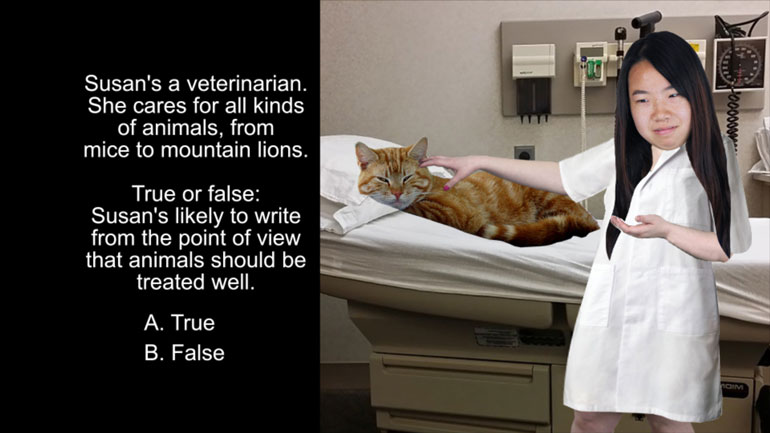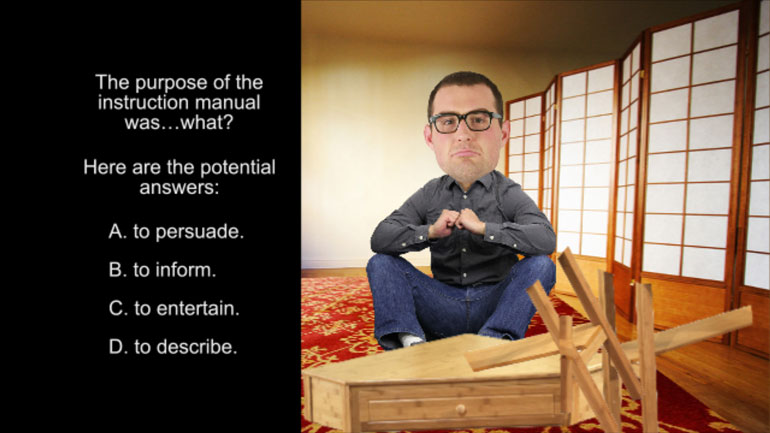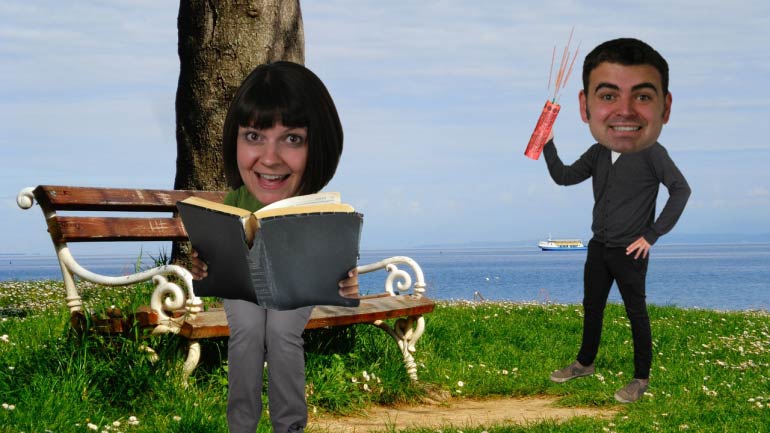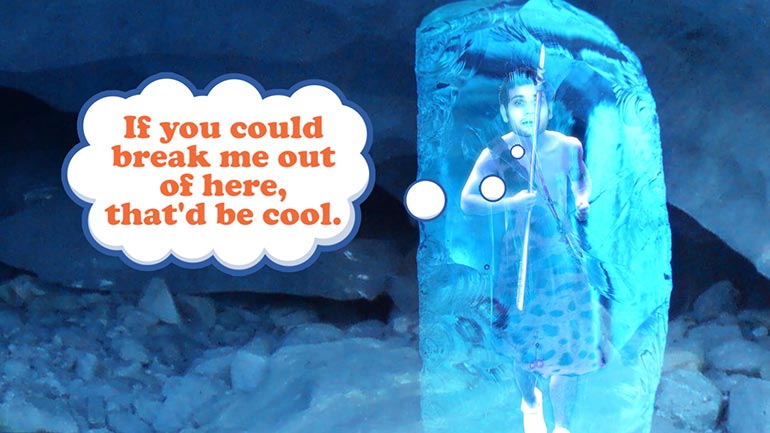ShmoopTube
Where Monty Python meets your 10th grade teacher.
Search Thousands of Shmoop Videos
Science 3: Dinosaur Footprints 68 Views
Share It!
Description:
When you time travel, pass out, and wake up in a cave, you might wonder why there's only one set of three-toed footprints leading in. But don't worry, it's just because a therapod carried you there. Actually, wait...you should probably start running.
Transcript
- 00:03
[Dino and Coop singing]
- 00:13
Footprints can be pretty useful.
- 00:15
They can be just the clue a detective needs to solve the case... [Magnifying glass showing tracks in sand]
- 00:19
A great way for animal trackers to find and photograph an elusive and exotic creature…
- 00:23
Or all the proof some people need that Bigfoot definitely exists. [Dog going through a bin]
Full Transcript
- 00:28
Footprints also tell us a lot about the dinosaurs that once roamed the Earth. [Big dinosaur footprint]
- 00:32
For instance, footprint fossils can teach us about how dinosaurs moved around. [Coop pointing at a blackboard]
- 00:36
We like to think it was the flamenco, but maybe it was a stately waltz…
- 00:40
They also can tell us whether a dinosaur moved around on two legs, like a T-Rex, four legs,
- 00:44
like a Brontosaurus, or three legs, like a Brontosaurus with a broken leg… [Brontosaurus with a cast on its leg]
- 00:48
And when scientists discover groups of footprints all heading in the same direction, well, that
- 00:53
tells us that some massive, many-footed creature trundled along that path. [Dinosaur with lots of legs]
- 00:57
We bet buying shoes was a nightmare.
- 00:59
….Heh. We're kidding.
- 01:00
What those prints actually tell us is that animals likely traveled in herds together!
- 01:04
Of course, the size and shape of a footprint says a lot as well -
- 01:07
For instance, this footprint belongs to a group of dinosaurs called Therapods, which
- 01:11
means 3-toed.
- 01:13
Makes sense, right?
- 01:14
If a footprint is tiny, well, it's safe to assume the animal that left the footprint
- 01:18
was pretty tiny, too. [The picture is zoomed in to show the tiny footprints]
- 01:19
Unless they're some weird tip-toey ballerinasaurus. [Dinosaur wearing a ballerina costume]
- 01:21
And if the footprint is gigantic, well, either we're talking about a pretty big dinosaur,
- 01:26
or a medium-sized dinosaur that wore shoes that were way too big. [Dinosaur with huge shoes on]
- 01:29
And prints don't have to refer specifically to footprints!
- 01:32
Scientists can learn from other imprints, too.
- 01:35
For example, some dinosaurs laid their eggs in nests on the ground, and the fossils left
- 01:39
behind allow us to see how many eggs there were, as well as their size. [The eggs are measured]
- 01:42
And no, they're not called "eggprints," but we think that's a kind of cute name, so we'll [Stop sign appears over 'eggprints']
- 01:46
call them that anyway!
- 01:47
So whether it's from feet, nests, or eggs, prints on the ground have taught us a whole
- 01:52
lot about the dinosaurs that came before us. [All the weird dinosaurs walking around]
- 01:54
Which makes us wonder…if there's some new species ruling the earth in a few million
- 01:58
years, what will they think of our old footprints? [Aliens looking at a human footprint]
Up Next
ELA Drills, Beginner: Point of View. Is the statement in the video true or false?
Related Videos
ELA Drills, Beginner: Textual Analysis 1. The purpose of the instruction manual was...what?
ELA Drills, Beginner: Point of View 3. Which sentence in the passage best shows the narrator's point of view on the topic of Chelsea Simpson?
We wanted to make a video about sedentary rocks, but we couldn't get lazy uncle Rocky off the couch. Oh well. We'll teach you about sedimentary roc...
Today we're bringing you the opposite of Jurassic Park—how living things become fossils. Okay okay, it might not be quite as fun...but hey, at le...




